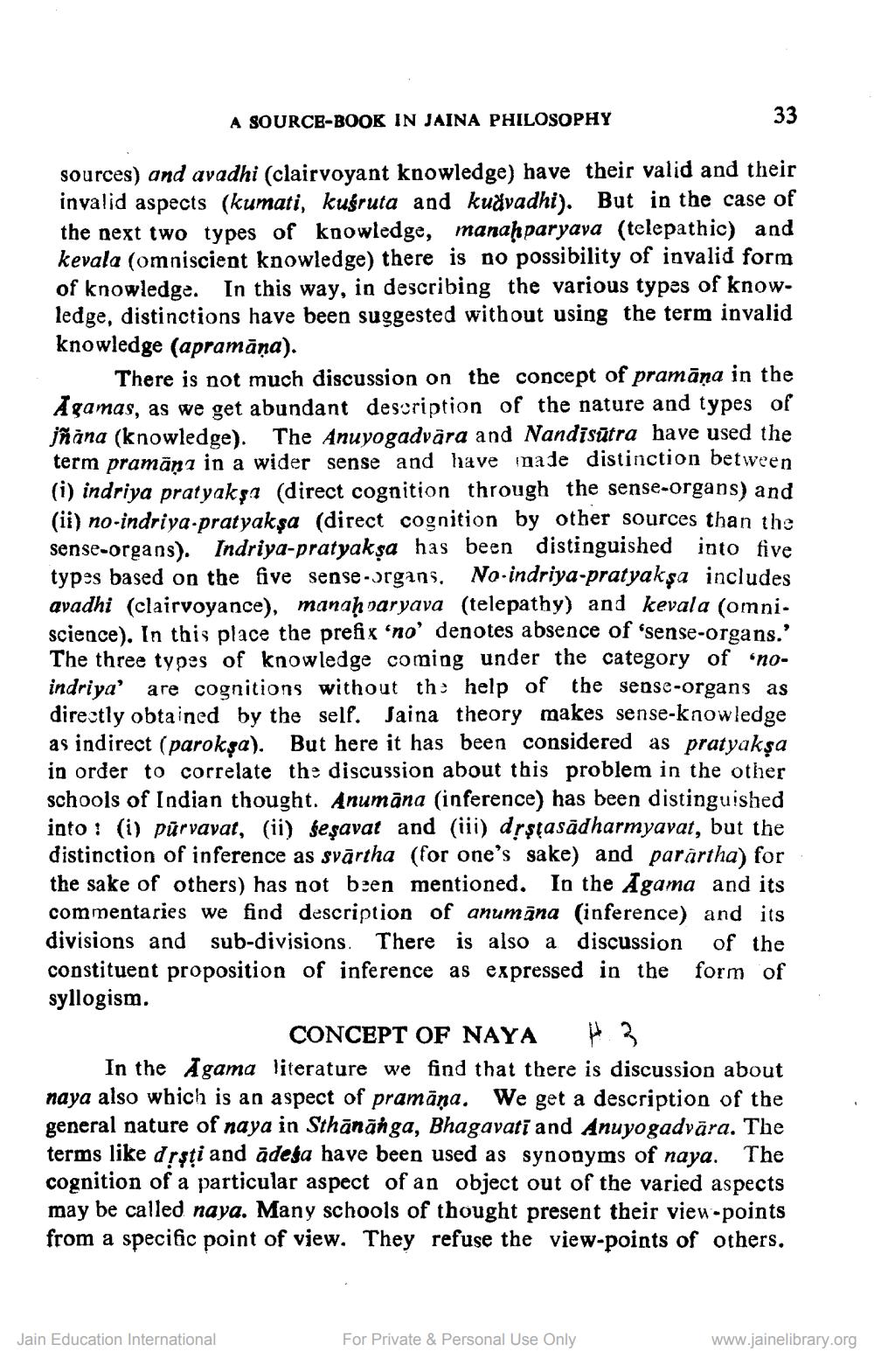________________
A SOURCE-BOOK IN JAINA PHILOSOPHY
sources) and avadhi (clairvoyant knowledge) have their valid and their invalid aspects (kumati, kuśruta and kuävadhi). But in the case of the next two types of knowledge, manaḥparyava (telepathic) and kevala (omniscient knowledge) there is no possibility of invalid form of knowledge. In this way, in describing the various types of knowledge, distinctions have been suggested without using the term invalid knowledge (apramāṇa).
33
There is not much discussion on the concept of pramāņa in the Agamas, as we get abundant description of the nature and types of jñāna (knowledge). The Anuyogadvara and Nandisūtra have used the term pramäṇa in a wider sense and have made distinction between (i) indriya pratyaksa (direct cognition through the sense-organs) and (ii) no-indriya-pratyakşa (direct cognition by other sources than the sense-organs). Indriya-pratyakṣa has been distinguished into five types based on the five sense-organs. No-indriya-pratyakşa includes avadhi (clairvoyance), manaḥ paryava (telepathy) and kevala (omniscience). In this place the prefix 'no' denotes absence of 'sense-organs.' The three types of knowledge coming under the category of 'noindriya' are cognitions without the help of the sense-organs as directly obtained by the self. Jaina theory makes sense-knowledge as indirect (paroksa). But here it has been considered as pratyakṣa in order to correlate the discussion about this problem in the other schools of Indian thought. Anumāna (inference) has been distinguished into: (i) pūrvavat, (ii) seṣavat and (iii) dṛṣṭasādharmyavat, but the distinction of inference as svārtha (for one's sake) and parārtha) for the sake of others) has not been mentioned. In the Agama and its commentaries we find description of anumana (inference) and its divisions and sub-divisions. There is also a discussion of the constituent proposition of inference as expressed in the syllogism.
form of
CONCEPT OF NAYA
# 3
In the Agama literature we find that there is discussion about naya also which is an aspect of pramāņa. We get a description of the general nature of naya in Sthānāṁga, Bhagavatī and Anuyogadvāra. The terms like drşți and adesa have been used as synonyms of naya. The cognition of a particular aspect of an object out of the varied aspects may be called naya. Many schools of thought present their view-points from a specific point of view. They refuse the view-points of others.
Jain Education International
For Private & Personal Use Only
www.jainelibrary.org




